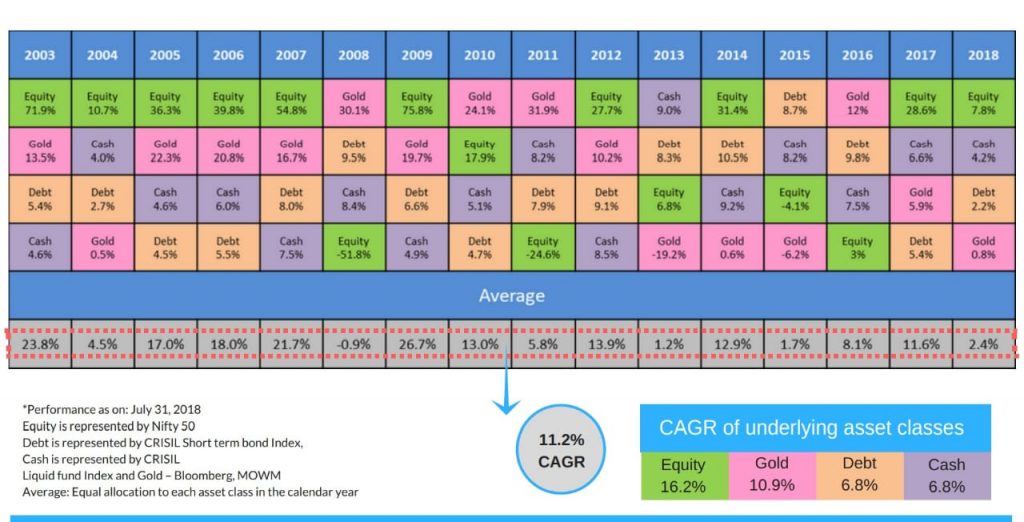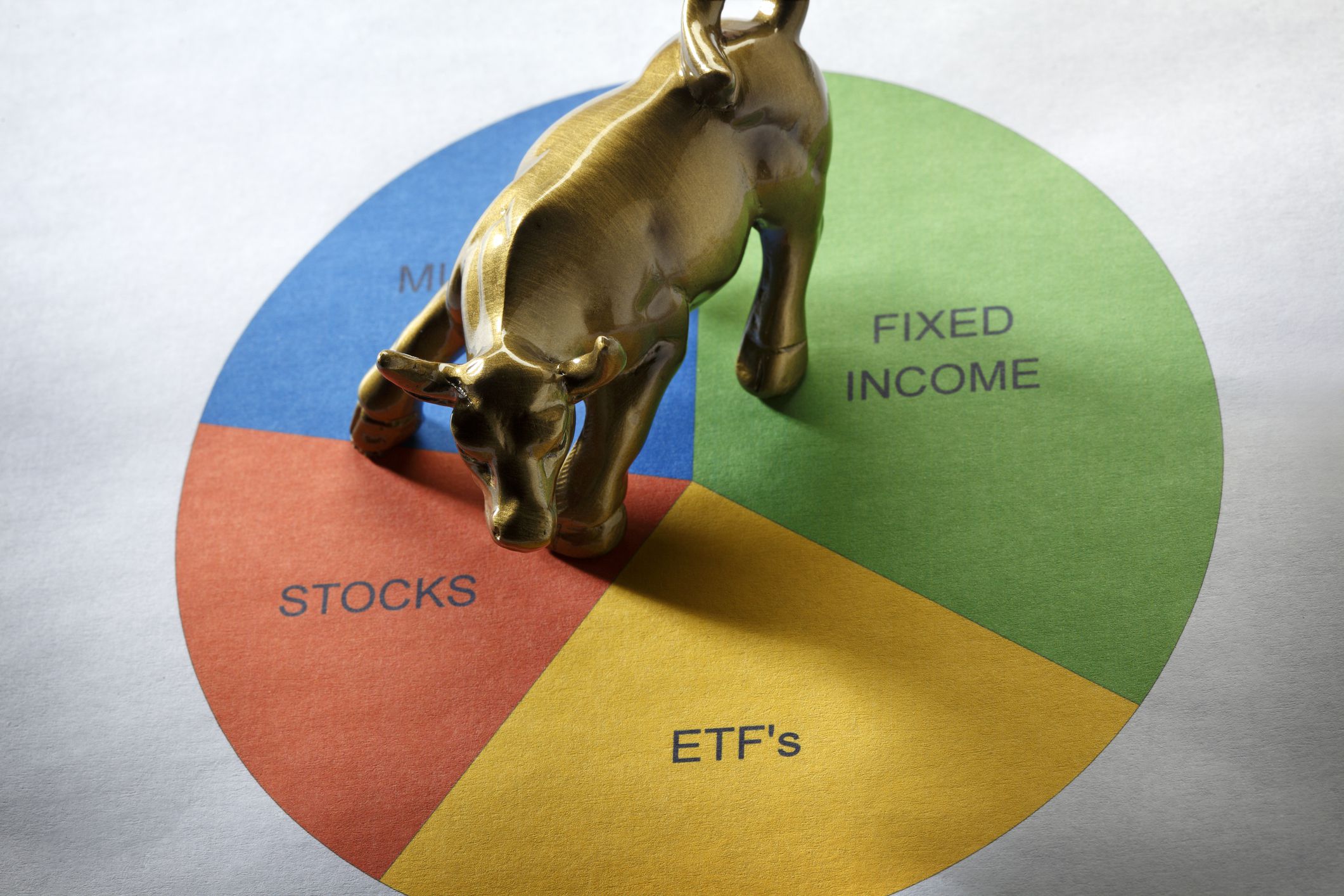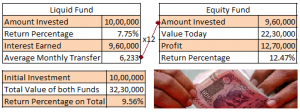Imagine you have a time machine or crystal ball with which you could look into the past or future: you could make perfect predictions and invest accordingly.
If it was the start of 2019, I would know that Trump is going to escalate trade war with China, so I would buy as much Gold as possible. Or if I’m in 2014, I know Mr. Modi is going to come to power, hence I’ll invest a lot of money in mutual funds.
Since we don’t yet have such powers in place, we have another option: Asset Allocation!
Asset allocation is an investment strategy of mixing non-correlating assets together to hopefully find an optimal balance of risk and return based on an investor’s profile. It dictates how much of your wealth you place in broad asset classes like equity, fixed income (e.g. FDs, PF), Gold and Real Estate.
To give a very simple example: Have you ever noticed a shop keeper selling seemingly unrelated products – such as umbrellas and sunglasses? Initially, that may seem odd. After all, when would a person buy both items at the same time? Probably never – and that’s the point. Shop keeper knows that when it’s raining, it’s easier to sell umbrellas but harder to sell sunglasses. And when it’s sunny, the reverse is true. By selling both items- in other words, by diversifying his product lines – he is reducing the risk of not selling on any given day.
Generally, everyone wants to invest in the asset class which delivers the highest returns, but the best asset classes keep changing, some years it is equity, sometimes gold, sometimes debt. Also, not everyone has the stomach to bear the losses. Looking for the highest returns is not always the wisest choice.
Okay so if I were to invest some money in Google, some in Facebook and remaining in Microsoft, that would be good diversification right? Not really. A portfolio made up of only technology stocks is not diverse enough. A portfolio made up of only those stocks is in serious jeopardy the next time a tech crash rears its ugly head.
You become truly diversified, when you own entirely different asset classes, because they are even less correlated with one another. e.g. Gold usually runs in the opposite direction to equities. So if equities are going up gold prices tend to go down and vice versa.
So what should my Asset Allocation be?
Asset allocation will be different for every investor. It is arrived at based on an investors age, lifestyle, goals and risk-taking appetite.
Know Thyself: The first step is actually to know what kind of investor you are. Are you someone who is comfortable with taking risk or are you risk averse? Depending on the risk level you are at, start investing.
A 35-year old who has to take care of two children will think about asset allocation differently than a 35-year old with no family.
Historically, equity has offered superior returns in the long run. However, a multi-asset approach tends to deliver smoother returns(less volatility). And asset allocation is not a one time event, it requires periodic evaluation. But that’s a discussion for another day.





